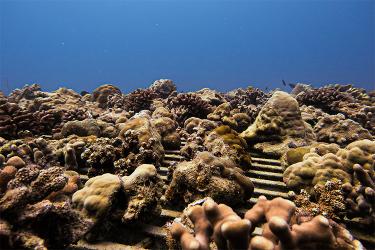Welcome to National Aquaculture Week, when we celebrate those who increase our access to fresh seafood while protecting coastal resources. Be sure to check back every day this week for exciting new features.
Aquaculture Features
Aquaculture: Policy and Possibilities
Aquaculture is important for nutrition, for local jobs, for climate-ready food systems, and for collaboration between wild capture and aquaculture to put U.S. seafood back on U.S. plates. In this Dive In With NOAA Fisheries podcast, we talk with Dr. Michael Rubino, NOAA Fisheries’ Senior Advisor for Seafood Strategy and formerly the director of the Office of Aquaculture. He’s been thinking a lot about farmed seafood’s place in the greater industry, and how technology and innovation have made it safer and more sustainable. Recently, he published an article about aquaculture policy considerations outlining some opportunities and challenges facing it in the future.
Sustainable Seafood from Tide to Table
The Tide to Table series profiles members of the aquaculture community, who provide valuable jobs and increase access to fresh, sustainably sourced seafood in the United States.
Learn more about sustainable seafood from the Tide to Table series
Tide to Table: Carteret Community College Aquaculture Technology
Carteret Community College’s aquaculture program is teaching sustainable marine science and business skills to future growers in North Carolina.
Carteret Community College's aquaculture program
NOAA Fisheries Releases FY22 Alaska Aquaculture Accomplishments Report
Alaska Regional Office and Alaska Fisheries Science Center continue coordinated efforts to prioritize projects and actions to support the growing Alaska aquaculture industry.
NOAA Fisheries FY22 Alaska Aquaculture Accomplishments Report
Tide to Table: Swell Oyster Co.
Swell Oyster Co. is developing an oyster flavor profile that has never been tasted before, on the first and only oyster farm in Hampton Harbor, New Hampshire. They are a company of firsts run by “two surfers who love the ocean.”
Video: 'No Shell Left Behind'
The Oyster Recovery Partnership is rebuilding habitats in the waters of the Chesapeake Bay. It is working to reverse poor water quality through a Shell Recycling Alliance to help restore wild oyster reefs.
Tide to Table: Barrier Beauties
Barrier Beauties is breaking new ground in East Galveston Bay—founder Hannah Kaplan was the first aquaculture grower to file an application with the Texas Parks and Wildlife Department. Only recently legalized for permitting in Texas, oyster aquaculture drew Kaplan’s interest because of its substantial positive effects on the environment.
Webinar: 'North Carolina’s Shellfish Aquaculture Industry: Climate Resilience and Engagement Best Practices'
Developing a resilient North Carolina shellfish aquaculture industry includes factoring in climate change and establishing best practices for communication and engagement.
Registration is now closed.
Enhancing Aquaculture Literacy
NOAA Fisheries, the National Sea Grant Office, and the NOAA Office of Education have partnered on a new aquaculture literacy webpage to enhance public understanding of aquaculture. Aquaculture literacy refers to an individual or a community’s familiarity with information about aquaculture and related environmental, economic, and social topics.
Tide to Table: Alaska Shellfish Farms
Millions of acres of untouched wilderness surround the Kachemak Bay growing area of Alaska Shellfish Farms. Located in Halibut Cove, Alaska, the bay is fed by glaciers that merge with the northern Pacific Ocean to create ideal growing conditions for the oysters, mussels, and varieties of seaweed cultivated on site.
Hawaiian Fishpond Kicks Off State’s First Sea Cucumber Aquaculture
This NOAA-supported project finds an environmentally restorative export product in Hawaiian sea cucumbers.
Hawaiian Fishpond Kicks Off State’s First Sea Cucumber Aquaculture
Tide to Table: Kauaʻi Sea Farms
Restorative aquaculture is the practice of growing beneficial crops, such as shellfish and edible seaweed, that benefit the surrounding ecosystem. Located in an extinct volcanic caldera on the island of Kauaʻi, this farm combines modern sustainable aquaculture practices with ancient food production philosophies.
Tide to Table: Monterey Bay Seaweeds
Monterey Bay Seaweeds cultivates west coast dulse, sea lettuce and ogo, which are all delicious additions to bar menus, culinary preparations as well as desserts. They are sustainably farmed in land-based tanks and harvested to order.
Aquaculture Meets UN Sustainability Goals
If done correctly, aquaculture increases food production, boosts economic growth in coastal and rural areas, and helps keep waterways clean. Explore how aquaculture fits into the 17 Sustainable Development Goals set by the United Nations.
















